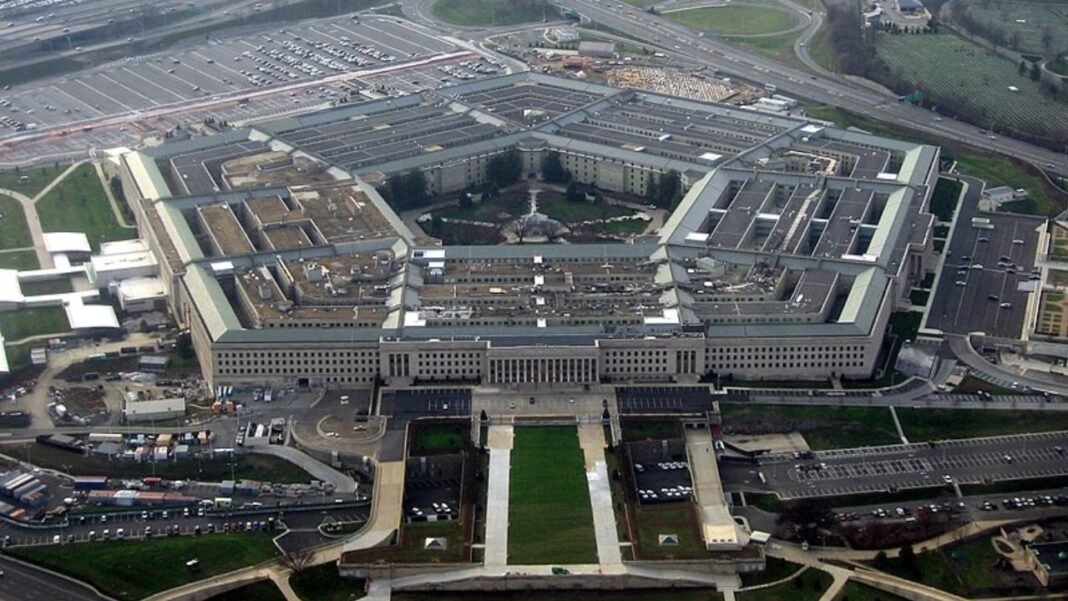
Several major US and international media organizations, including The New York Times, Fox News, The Associated Press, and Agence France-Presse (AFP), have declined to accept a new document issued by the US Department of Defense outlining reporting rules for accredited journalists covering the Pentagon.
The document reportedly requires credentialed reporters to obtain written authorization from the Department of Defense before requesting or publishing certain types of information. Outlets that do not accept the guidelines risk losing their Pentagon press credentials.
According to the Pentagon Press Association (PPA), the new regulations “silence Pentagon employees” and threaten retaliation against journalists who seek or publish information without prior approval. The PPA warned that the rules contradict core principles of press freedom and transparency.
Press outlets denounce Pentagon media restrictions
Major US networks, including ABC, CBS, CNN, NBC, and Fox News, released a joint statement on social media declaring that they “stand with virtually all other major outlets” in refusing to accept the Pentagon’s new rules.
“These restrictions limit journalists’ ability to continue informing the nation and the world on vital issues of national security,” the statement said.
The networks added that they “will continue to cover the US military while upholding the principles of a free and independent press.” Other prominent outlets, including The Washington Post, Reuters, and even conservative networks like Newsmax, also declined to sign the agreement.
Strong reactions over Pentagon media new guidelines from news organizations
Reuters expressed “deep concern” over the Pentagon’s attempt to restrict reporting.
“A free and independent press is essential to American democracy, ensuring transparency and accountability,” the agency said in a statement. “Any attempt by the US government to limit journalists’ ability to report undermines First Amendment protections and the free flow of information crucial to informed public discourse.”
Reuters added that it remains committed to impartial, accurate, and independent coverage of the Pentagon “in accordance with Thomson Reuters principles.”
The New York Times took a similarly firm stance:
“Asking independent journalists to submit to such restrictions runs counter to constitutional protections for a free press and represents an ongoing effort to suppress the public’s right to understand what its government is doing.”
“This is another step in a troubling pattern of restricting access to how the military operates with taxpayer funds. Our journalists will continue to report deeply and objectively.”
The Wall Street Journal called the move “deeply troubling,” noting that the outlet is evaluating its implications for its reporting teams.
The Washington Post’s Executive Editor Matt Murray emphasized constitutional concerns, stating:
“The Constitution protects the right to report on the actions of democratically elected and appointed officials. Any government attempt to control messaging or restrict access is contrary to the First Amendment and the public interest. The Washington Post will continue to pursue accurate and fair journalism in that spirit.”
First amendment concerns: A constitutional clash
At the heart of the dispute lies the First Amendment to the US Constitution, which guarantees freedom of speech, freedom of the press, and the right to hold the government accountable.
Media and legal experts argue that the Pentagon’s new requirements amount to prior restraint, a form of censorship that prevents publication before it occurs. Such restrictions have been repeatedly rejected by US courts as unconstitutional.
The Pentagon Press Association warned that the new framework “creates unnecessary barriers to journalistic work” and “blurs the boundaries between government officials’ responsibilities and journalists’ independence.”
By requiring pre-approval of information, critics say the Defense Department risks establishing a precedent that could extend to other agencies, eroding the longstanding principle of press autonomy in matters of public interest.
Pentagon and government response
US Defense Secretary Pete Hegseth responded to the backlash with a dismissive post on X (formerly Twitter), sharing a single emoji—a waving hand—widely interpreted as a sarcastic farewell to the departing media partners.
👋 https://t.co/wnTQiHJZyC
— Pete Hegseth (@PeteHegseth) October 13, 2025
Officials within the Trump administration defended the policy, arguing that the new guidelines are necessary to “protect national security,” and Secretary Hegseth reiterated that “access to the Pentagon is a privilege, not a right,” adding that accredited press members “are no longer permitted to incite criminal acts.”
The Department of Defense has not yet indicated whether it will revise or withdraw the controversial document following the near-universal media boycott.


